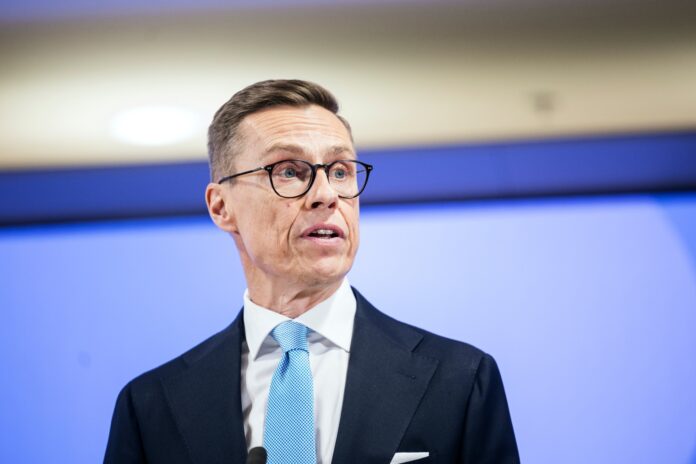Finland will complete a shift in power on Friday as Alexander Stubb is sworn in as the 13th president of the Nordic country, giving him oversight of foreign policy and national security, according to Bloomberg.
Stubb, a 55-year-old former prime minister, will formally take over from Sauli Niinisto as head of state in an inauguration ceremony in parliament after winning the February 11 presidential election. He represents continuity in foreign and security policy in the role that’s focused on safeguarding independence and peace next to a belligerent Russia.
A key task during Stubb’s six-year term will be to help steer Finland’s integration into the North Atlantic Treaty Organization, which it joined in April in response to Russia’s full-scale invasion of Ukraine. He has said Finland wants to be an “active” member in the defense alliance as it seeks to keep neighboring Russia at bay.
Finland’s closest neighbor, Sweden, is in the final stages of accession into NATO with formal entry expected next week or shortly thereafter. The bloc’s northern enlargement will strengthen the defense of the eastern flank, allowing the alliance to dominate the Baltic Sea region and facilitating the transit of troops and equipment from Norway’s North Sea ports to the east.
Finland guards 1,300 kilometers of border with Russia, the frontier that is now closed to curb the flow of Russian-assisted asylum seekers, seen by Finns as a deliberate attempt to undermine their national security. Finland is also investigating the rupture of an undersea gas pipeline after a Hong Kong-flagged ship dragged its anchor on the seabed, damaging the interconnector.
In addition to his role as the country’s top diplomat, the president is also the supreme commander of Finland’s defense forces. The country of 5.5 million has more artillery than France and Germany combined and can call on as many as 280,000 troops in time of war. The president shares oversight of foreign relations with the government, but domestically he has limited powers..


